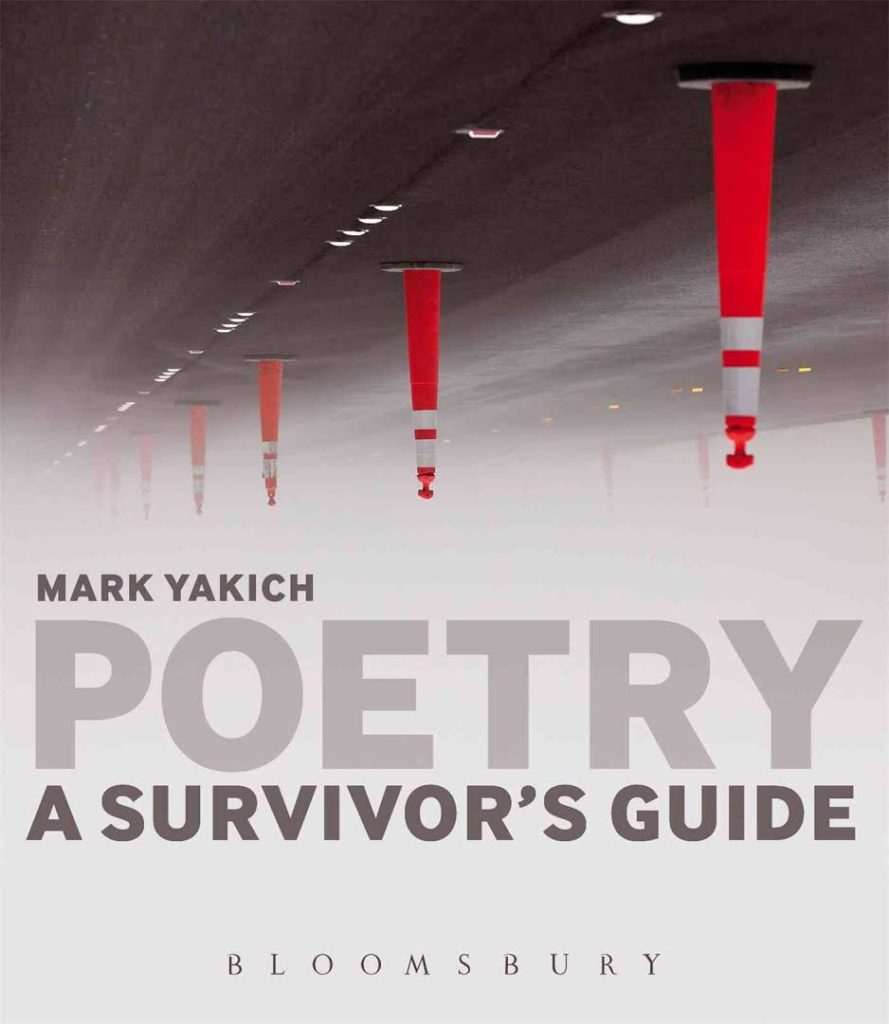 “Inspiration comes after writing, not before,” Yakich states in his new book Poetry: A Survivor’s Guide. I stumbled over this for a few moments because traditionally we are made to believe that the formula is a.) become inspired, b.) now write. But really I think Yakich is saying all inspiration can do is make the poem better through the revision process, where the writer can then pull from the various resources given to them. The first time a poem is written needs to be wholly from the inner gut of the writer. I find this to be true in my own writing, a lot of people probably do, even though I hadn’t thought about it before picking up this book. Yakich will tell you the opposite of what everyone else does, making you re-think not only poetry, but also writing and the world of writing in general. It is his honest and “unconventional” advice that make Poetry: A Survivor’s Guide a memorable and valuable experience.
“Inspiration comes after writing, not before,” Yakich states in his new book Poetry: A Survivor’s Guide. I stumbled over this for a few moments because traditionally we are made to believe that the formula is a.) become inspired, b.) now write. But really I think Yakich is saying all inspiration can do is make the poem better through the revision process, where the writer can then pull from the various resources given to them. The first time a poem is written needs to be wholly from the inner gut of the writer. I find this to be true in my own writing, a lot of people probably do, even though I hadn’t thought about it before picking up this book. Yakich will tell you the opposite of what everyone else does, making you re-think not only poetry, but also writing and the world of writing in general. It is his honest and “unconventional” advice that make Poetry: A Survivor’s Guide a memorable and valuable experience.
There are a lot of “craft” books on poetry, (Whatever that word craft means? As if writing is equivalent to a macaroni pinwheel or scrapbooking, etc.) most notably The Triggering Town by Victor Hugo or The Virtues of Poetry by James Longenbach. Unlike many books on writing though, Yakich’s Poetry: A Survivors Guide—I’m so happy it’s a survivor’s guide and not this bougie, talked up craft book that only academic folk can parse out—will fit right into a poet’s life like the first time they read Whitman’s Song of Myself and actually understood it.
Unfortunately, in many books like this, we find the author putting themselves in front of the work. Look at me, look at me! It turns into an ego thing, a mine is bigger than yours. “Critics will try to tell you ranking is for experts and disappointment for amateurs . . .. ” Yakich tears apart those people who make poetry not for everyone, specifically when talking about The Best American Poetry series that is released once a year. “There are usually some very good poems in the collection; 1994 was particularly a fine year. Still, a more accurate title for the series would be something like A Clutch of Unconcatenated Poems That a U.S. Poet Kinda Enjoyed in the Small Hours Before Drifting off to Sleep.”
“There is no accounting for taste. What one reader admires, another disdains… Don’t pretend to love a poem you really find dull. Don’t be afraid of disliking a great poem or poet.”
Whether you are new to poetry or experienced, this book uncovers things about the poem that you did not know or understand or remember. Yakich’s advice and observations on poetry are real, they’re meaningful, they’re not pretentious and they’re for the greater good of poetry and its writers. “Someday, when all your material possessions will seem to have shed their utility and just become obstacles to the toilet, poems will still hold their value.”
Yakich wrote this for his students, I am a student, this is the most genuine book on poetry I have come by. This book tackles every ounce of the poem and the poem in the real world: knowing the poem, reading the poem, writing the poem, publishing the poem, reviewing the poem. It really is a survivor’s guide and all of us poets and poetry readers can get something from it.
Reading this survivor’s guide will make you feel why you fell in love with the poem. Not only will it remind you why you fell in love, Yakich’s smart, playful, humble and sometimes brash words towards the poetry will make you realize (hopefully you already knew) the importance of the art in your life, others, and the social setting.
“Poetry’s irrelevance, therefore, becomes its importance,” he says.